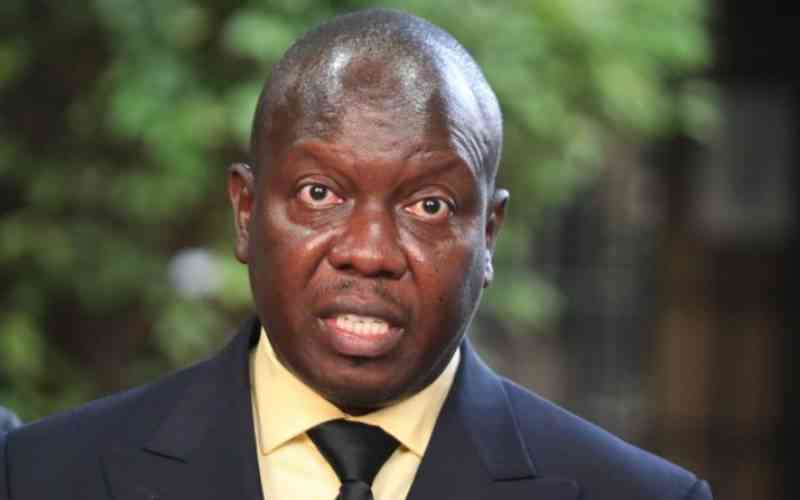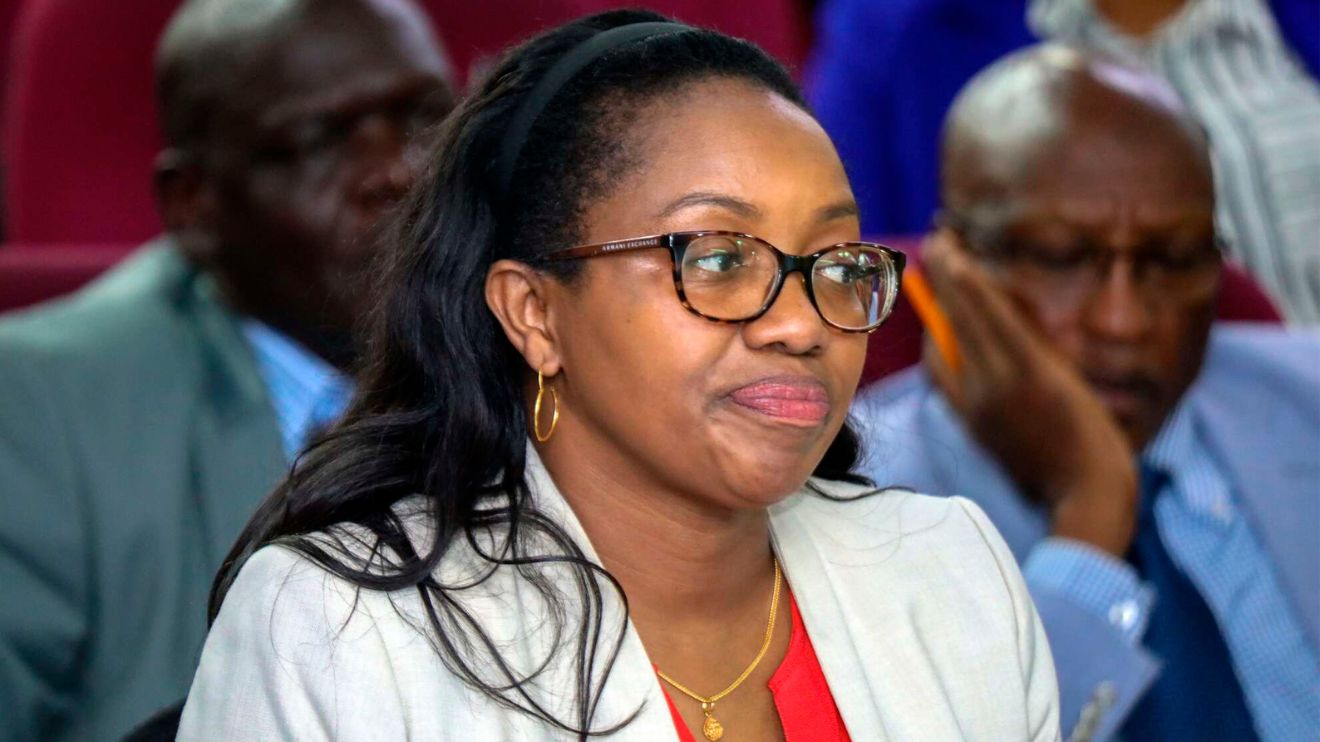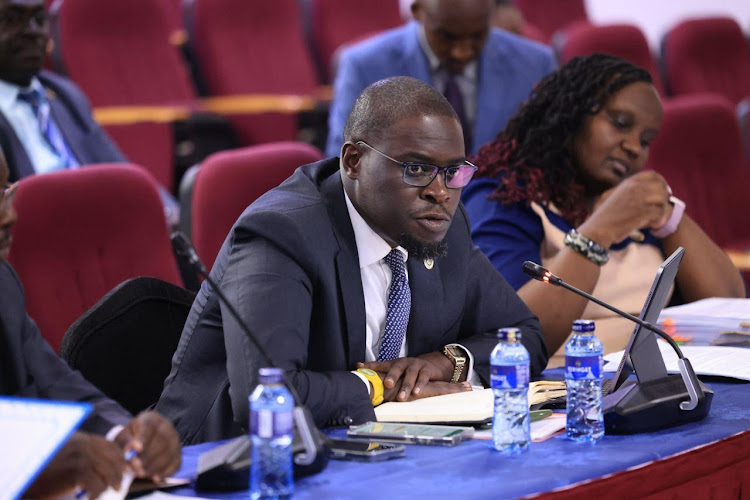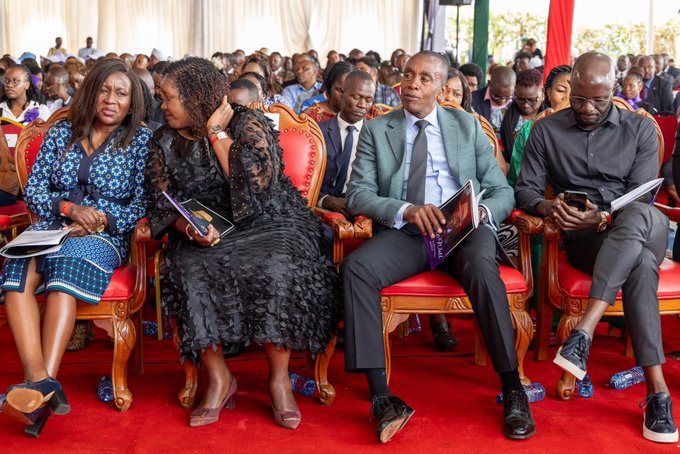Sources at Integrity Centre told The Weekly Vision that the ODPP frequently returns files for “further investigations” despite the EACC’s belief that it has built watertight cases. In a recent submission to the Senate Public Accounts Committee, the EACC disclosed that the ODPP has withdrawn 18 high-profile graft cases from 15 counties since 2013
By The Weekly Vision Reporter
A fresh confrontation has emerged between the Ethics and Anti-Corruption Commission (EACC) and the Office of the Director of Public Prosecutions (ODPP) after the anti-graft agency rejected a plea bargain deal involving former Migori Governor Okoth Obado.
The deal would have seen Obado surrender property worth KSh225 million in exchange for the withdrawal of a KSh73 million corruption case against him, his four children, and close business associates. The ODPP, led by Renson Ingonga, had asked Milimani Anti-Corruption Court Principal Magistrate Charles Ondieki to admit the agreement and close the file. However, EACC counsel M. Ng’ang’a objected, stalling the process and paving the way for a full trial.
In July, Ondieki had granted Obado and his co-accused a final opportunity to conclude plea negotiations by 21 August. But when the case came up on Tuesday, 30 September, the ODPP presented the deal only for the EACC to oppose it, arguing that although it had been served with the details, it was not in concurrence.
“The Commission is opposed to the agreement and has not signed it,” Ng’ang’a told the court. All other parties had, however, endorsed the deal. Following the objection, Magistrate Ondieki directed the parties to re-engage in negotiations, stressing that alternative dispute resolution mechanisms should be pursued where possible in the interests of justice. He added that should talks fail, the matter would be set for a full hearing.
Obado and 17 others, including his children, face charges of conspiracy to commit an economic crime, conflict of interest, money laundering, and unlawful acquisition of public property, allegedly committed during his tenure as governor. Under the contested deal, he had agreed to surrender property in Nairobi and Migori, as well as vehicles, in return for discharge.
The EACC’s rejection highlights its growing frustration with the ODPP’s preference for out-of-court settlements in high-profile graft cases, which it argues undermines accountability and fuels public perceptions of impunity.
Sources at Integrity Centre told The Weekly Vision that the ODPP frequently returns files for “further investigations” despite the EACC’s belief that it has built watertight cases. In a recent submission to the Senate Public Accounts Committee, the EACC disclosed that the ODPP has withdrawn 18 high-profile graft cases from 15 counties since 2013.
“The major withdrawals happened between 2023 and 2024, with five and seven cases dropped respectively. So far in 2025, two cases have already been withdrawn,” said EACC Chief Executive Officer Ahmed Mahmoud. He lamented that the Commission’s lack of prosecutorial powers severely undermines its ability to hold corrupt officials accountable and recover stolen public funds.
Nandi Senator Samson Cherargei questioned how the ODPP recovers public resources without prosecuting suspects. The EACC’s concerns were recently vindicated when the High Court overturned a decision by the ODPP to drop corruption charges against Cabinet Secretary for Co-operatives and MSME Development, Wycliffe Oparanya.
On 16 September 2025, Justice Benjamin Musyoki ruled that the ODPP had acted outside the Constitution and its internal guidelines by withdrawing charges without consulting the EACC, which had investigated the matter and recommended prosecution.
The case involved allegations that Oparanya received more than KSh56.7 million from private companies while serving as Governor of Kakamega County, part of which was allegedly used to acquire property in Karen, Nairobi. The EACC had recommended charges including conflict of interest, abuse of office, conspiracy to commit corruption, and money laundering.
Although the ODPP had initially concurred and approved prosecution, it later reversed its decision after submissions from Oparanya’s defence team. The court found that the EACC was improperly excluded from the review of the new evidence.
In his judgment, Justice Musyoki criticised the ODPP for “usurping the investigative mandate of the EACC,” terming the move irregular and unconstitutional. He quashed the withdrawal of charges but declined to annul Oparanya’s Cabinet appointment, stating it was beyond the scope of the proceedings.
In a subsequent statement, the EACC said the ruling reignites scrutiny over the ODPP’s handling of high-profile graft cases.
“The judgment is likely to fuel further debates about prosecutorial accountability and the broader fight against corruption in Kenya,” the Commission noted.





